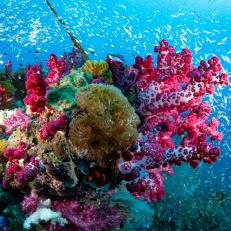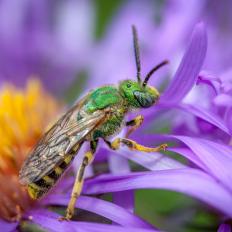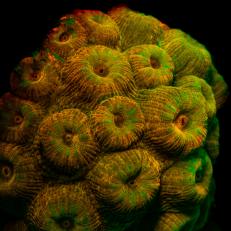Meet the Endangered Species Living at Georgia Aquarium
How do aquariums care for endangered species? To celebrate World Oceans Week, Georgia Aquarium takes us behind the scenes to learn more about endangered species conservation and research.
June 08, 2022
By:
Discovery
and
Georgia Aquarium
View The Gallery
1 / 13
Georgia Aquarium cares for over ten different endangered species, including African penguins. Through education and partnerships with organizations, like the Southern African Foundation for the Conservation of Coastal Birds (SANCCOB), Georgia Aquarium aids in their fight for survival.
Georgia Aquarium is committed to working with beluga whales both in their care and in natural habitats, which has aided in the development of effective conservation, research and education programs that are essential to the survival and sustainability of beluga whales.
You may have seen the unique bowmouth guitarfish at Georgia Aquarium. They are often the bycatch of shrimp fishermen, its fins are marketed commercially for human consumption, while also facing habitat destruction and pollution. By caring for bowmouth guitarfish at Georgia Aquarium, we can learn more about their habits, diets, and so much more.
Did you know that coral sustains more than 25% of aquatic species? Since 2010, Georgia Aquarium has been working in partnership with the Coral Restoration Foundation (CRF) in the Florida Keys to help restore corals in the ocean.
Great hammerhead sharks are another endangered shark species in Georgia Aquarium’s care. An adult great hammerhead shark has no natural predators except humans. This species is largely targeted for its large fins, which are desirable in the fin trade for use in shark fin soup. An important step in helping endangered shark species like this is educating others on the misconception that sharks are highly dangerous to humans, when in fact, humans are the real threat to sharks.
Meet Tank, the green sea turtle! Tank was rescued over 20 years ago and is well-known at Georgia Aquarium as an ambassador for his species. Green sea turtles play a vital role in our ocean’s health and ecosystem.
Longcomb sawfish, also known as the green sawfish, are listed as critically endangered. Georgia Aquarium researchers learn more about this unique species by having it under their care. They learn about their diets, reproduction, and more. You can find the longcomb sawfish in their Ocean Voyager gallery.
Georgia Aquarium is the only aquarium in the United States to care for manta rays. The Aquarium’s research teams conduct field operations to study how populations of manta rays are moving along the Atlantic Coast and how they use those environments. By having manta rays in their care, they are able to compare data from in the Aquarium, to what they discover in the ocean to create more robust data sets.
Georgia Aquarium is home to several species of poison dart frog, several of which are listed as endangered. This species faces a major threat from human activities, such as habitat loss.
Georgia Aquarium cares for several sand tiger sharks and closely studies their behaviors and characteristics to expand knowledge and implement practices to help preserve these sharks in the ocean. Research efforts have included studying their long and interesting reproductive cycle.
Another endangered species at Georgia Aquarium is the southern sea otter, which is considered a keystone species because they help maintain the health of kelp forests by preying on sea urchins. Sea otters were once hunted to the verge of extinction and current threats include entanglement in fishing nets, oil spills, and predation by great white sharks.
Whale sharks are the largest fish in the world and play a large part in our ocean’s ecosystems. Georgia Aquarium protects whale sharks through research and conservation efforts in the field, in the laboratory, and through their unique position as the only aquarium in the Western hemisphere to care for these gentle giants. Researchers study their behavior, diets, life cycle, and so much more by having them at the Aquarium. Georgia Aquarium was the first to sequence the whale shark genome entirely and honed the technique of drawing blood from a whale shark underwater!
Zebra shark populations are decreasing due to illegal fishing. Georgia Aquarium has a record of successful reproduction of zebra sharks, giving them the ability to gain a better understanding of this species and how they reproduce, to hopefully one day increase their population numbers in the ocean.









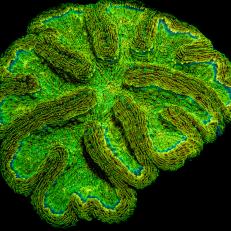
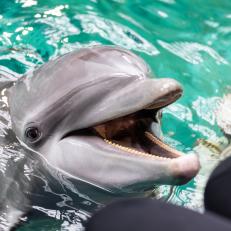

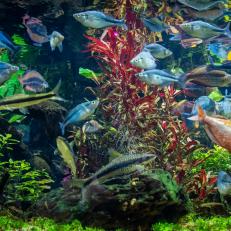
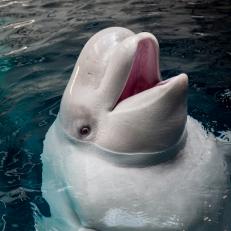
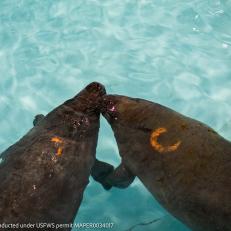
.jpg.rend.hgtvcom.231.231.suffix/1632421591119.jpeg)
